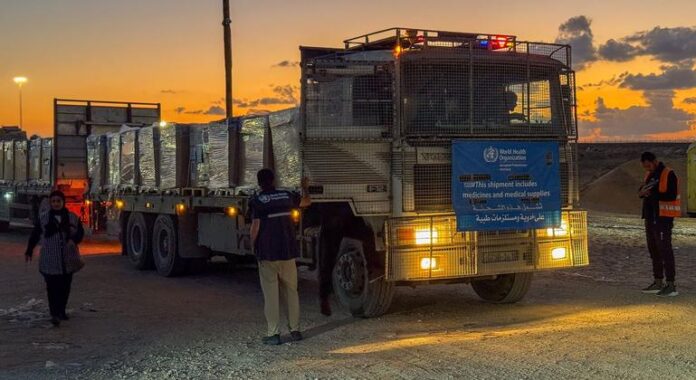Abeer Etefa, Senior Regional Communications Officer for the World Food Programme (WFP) told reporters in Geneva on Tuesday that since the ceasefire took hold on 11 October the agency has been able to bring in over 6,700 metric tonnes of food – enough for close to half a million people for two weeks.
“Daily deliveries continue and they are now averaging around 750 tonnes,” Ms. Etefa said. “That’s much better than what we had before the ceasefire, but it’s still well below our target, which is around 2,000 tonnes every day.”
The WFP spokesperson explained that unless all border crossing points can be used, reaching this target is “almost impossible”
Cross purposes
Currently, only the crossings at Kerem Shalom and Kissufim in the south are open, and the “severe amount of destruction” impedes access from the south to the north – where famine was declared in August.
They are not very confident how long the ceasefire will last and what will happen next
“We need Erez, we need Zikkim, we need these border crossing points to open,” Ms. Etefa insisted.
Reaching northern Gaza with large-scale convoys is a priority, she said.
“We’ve cleared the roads at scale into the north,” she added, removing the debris from the border crossing points to be able to connect to Gaza City where the situation is particularly dire.
“But we need these crossings to open so that we’re able to get large-scale convoys.”
Distribution goal
The agency has started restoring its food distribution system, with a goal of scaling assistance through 145 distribution points across the Strip. Some 26 distribution points have already been reinstated.
“The response has been really overwhelming,” Ms. Etefa said, describing people’s reactions to the food distributions. “People are showing up in large numbers, grateful for the efficiency of the delivery of food assistance” as well as the “dignified way” in which they are able to stand in line and quickly obtain their food rations.
The impact is significant, especially for “the most vulnerable, the women, female-headed households, the elderly,” she said.
Hedging bets
People are hopeful but there is “cautious optimism” as to how long the current conditions will prevail, Ms. Etefa said. Those receiving food aid tend to eat only part of the rations and keep the rest in case of emergency, “because they are not very confident how long the ceasefire will last and what will happen next.”
“It is a fragile peace,” Ms. Etefa stressed.
Adding to the challenges, food prices in Gaza remain prohibitive and supplies are still not sufficient “to the level that it can be affordable”, Ms. Etefa said. “There’s still a huge problem of access… people can find food in the market, but it’s out of reach because it’s extremely expensive,” she warned.
Support for the starving
WFP is supporting the most food insecure people with digital payments which have so far allowed some 140,000 people to buy food on local markets, the goal being to double the programme in the coming weeks.
The WFP spokesperson reiterated the agency’s calls for commercial supplies to enter the enclave and supplement aid. “Humanitarian aid will not be the only solution for dealing with severe malnutrition and having a complete food basket,” she explained.
Only a full implementation of the ceasefire can enable WFP to operate at the scale required for this crisis, Ms. Etefa stressed. “Sustaining the ceasefire is vital.
It’s really… the only way we can save lives and push back on the famine in the north of Gaza,” she concluded.
Bread is prepared at a bakery in Deir Al Balah, Gaza.










